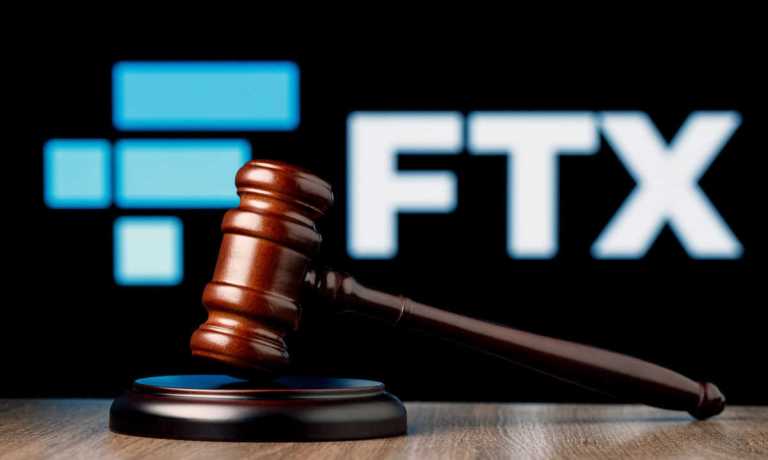FTX Recovers $7 Billion as Unnamed Lawyer Enters Debtors’ Crosshairs

As the old adage goes, lying and stealing live next door to each other.
And in the case of the failed FTX cryptocurrency exchange, it couldn’t be truer.
Just take a look at the apartments purchased in the Bahamas by FTX and Alameda executives using $243 million of misappropriated customer funds: seven apartment units in the One Cable Beach building and a whopping 17 apartments in the luxury Albany complex, the majority within a few floors or units of one another.
This, as the FTX Debtors on Monday (June 26) released their latest report entitled, “The Second Interim Report of John J. Ray III to the Independent Directors: The Comingling and Misuse of Customer Deposits at FTX.com,” adding more color to the sad saga of FTX and its founder Sam Bankman-Fried.
The second report alleges that a top lawyer for the firm, together with Bankman-Fried, repeatedly lied to banks and auditors, executed false documents, and assisted the firm and its various affiliates as they moved between jurisdictions to avoid detection of wrongdoing and erect an ongoing operational “mirage.”
It also reveals, in a bit of good news, that the FTX Debtors have so far recovered $7 billion of the approximately $8.7 billion in customer-deposited assets which were misappropriated from the FTX.com exchange.
“From the inception of the FTX.com exchange, the FTX Group commingled customer deposits and corporate funds, and misused them with abandon,” the report stated.
“The FTX Senior Executives did not commingle and misuse customer deposits by accident. Commingling and misuse occurred at their direction, and by their design,” added John J. Ray III, the current FTX CEO in charge of the multibillion-dollar exchange’s restructuring.
See also: Crypto Continues to Serve as Case Study in Behavioral Economics
FTX Executives Were Aware of $10 Billion Shortfall in March of 2022
Per the Debtors’ latest report, top executives at the FTX Group were lying from the jump — and insiders including Alameda Research CEO Caroline Ellison and Bankman-Fried were well aware that their operation was wildly insolvent months before FTX publicly and disastrously imploded in November of 2022.
By August 2022, FTX’s senior team was aware of a growing cash liability that totaled around $8.9 billion. Rather than disclosing the shortfall, the amount was hidden under a sham account given the title “Korean Friend.”
Additionally, months before — in March 2022 — Ellison had estimated in private notes that FTX.com had a cash deficit alone of over $10 billion.
Much of the deficit, over $6.4 billion, took the form of fiat currency and stablecoin that had been misappropriated.
Ellison has since pleaded guilty to her role in FTX’s fraud and is cooperating with authorities.
Bankman-Fried to date maintains his innocence.
The report alleges that an unnamed senior lawyer, referred to as “Attorney-1,” and Bankman-Fried played leading roles in carrying out this deception, with Bankman-Fried going so far as to repeatedly give false testimony to members of Congress.
Debtors have identified on Attorney-1’s hard drive a final copy of the false written testimony that Bankman-Fried provided to Congress.
A Top FTX Lawyer Is Blamed for the First Time
When FTX was first launched, the company struggled to get bank accounts where users could transfer dollars and other fiat currencies for the purpose of trading crypto.
Attorney-1 actively facilitated and covered up the FTX Group’s commingling of customer and corporate funds and allowed false information to be conveyed to customers, banks, auditors, investors, and other third parties, the report alleges.
Among the attorney’s alleged actions, the most brazen included falsifying a payment agreement between FTX and Alameda that was backdated by around two years and wet-signed by Bankman-Fried to avoid a DocuSign timestamp.
This falsified document was submitted to an external auditor, and widely shared with potential investors in connection with FTX’s $400 million Series C financing round that successfully closed in January 2022.
The second interim report also pulls back the façade of Bankman-Fried’s “welcoming” approach to crypto regulation — noting that in late 2020, when Hong Kong announced plans to regulate crypto exchanges, Bankman-Fried and other FTX senior executives immediately sought to leave the jurisdiction.
FTX Group moved to the Bahamas because, with respect to its regulatory environment, the Bahamas was “friendly” and “cutting back on red tape,” according to testimony from Ellison.
On behalf of FTX, Attorney-1 is alleged to have offered a former Bahamian government official a $1 million “bonus” to procure a necessary business license for FTX within 10 weeks. The official reportedly obtained the license less than six weeks later.
What’s in a Brand, Anyway?
Despite all the bad behavior, a June 22 court filing reveals that at least 363 “sales parties” were interested in buying the brand and bones of FTX and went so far as to sign non-disclosure agreements seeking more details about the restructuring and potential reboot of the exchange.
Notable names among the 363 include NASDAQ, BlackRock, Robinhood, and crypto firms Ripple Labs, Galaxy Digital and OKCoin, among many others.
Bankman-Fried is facing a number of criminal charges and will appear for an October trial in New York.